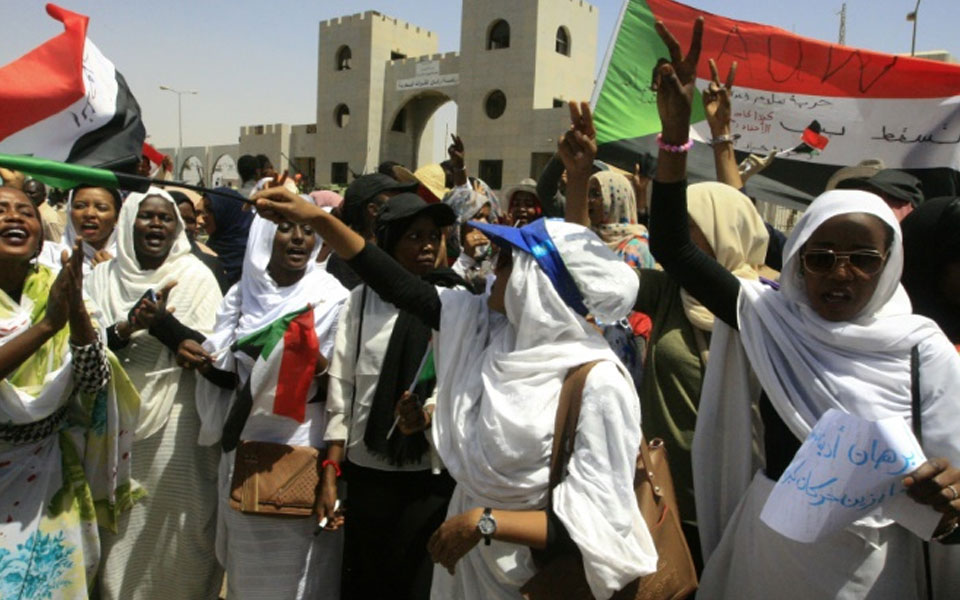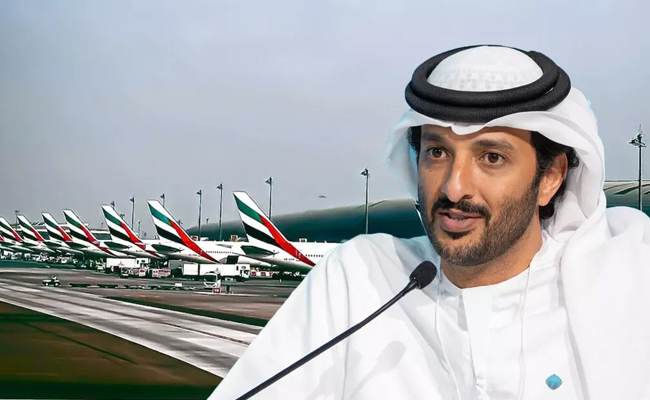Khartoum: Sudanese protesters on Sunday demanded the country's military rulers "immediately" hand power over to a civilian government that should then bring ousted leader Omar al-Bashir to justice.
Thousands remained encamped outside Khartoum's army headquarters to keep up pressure on a military council that took power after ousting Bashir on Thursday.
The organisation that spearheaded the protests against Bashir, the Sudanese Professionals Association, called on the council "to immediately transfer power to a civilian government".
The SPA also demanded the next "transitional government and the armed forces bring Bashir and all the chiefs of the National Intelligence and Security Service (NISS)... to justice".
"The Sudanese Professionals Association calls on its supporters to continue with the sit-in until the revolution achieves its demands," it added.
The military council later held a press conference at which its spokesman did not respond to the protesters' latest demands.
Instead it announced the appointment of a new intelligence chief.
Earlier the military council met with political parties and urged them to agree on an "independent figure" to be prime minister, an AFP correspondent present at the meeting said.
"We want to set up a civilian state based on freedom, justice and democracy," a council member, Lieutenant General Yasser al-Ata, told several political parties, urging them to agree on the figures to sit in civilian government.
The protesters have insisted civilian representatives must join the military council.
A 10-member delegation representing the protesters delivered their demands during talks with the council late Saturday, according to a statement by the Alliance for Freedom and Change umbrella group spearheading the rallies.
The foreign ministry urged the international community to back the military council "to achieve the Sudanese goal of democratic transition".
It said council chief General Abdel Fattah al-Burhan was "committed to having a complete civilian government and the role of the council will be to maintain the sovereignty of the country".
Talks between protest leaders and Sudan's new rulers were followed Sunday by a meeting between Washington's top envoy to Khartoum, Steven Koutsis, and the military council's deputy.
Mohammad Hamdan Daglo, widely known as Himeidti, told Koutsis "about the measures taken by the military council to preserve the security and stability of the country," the official SUNA news agency reported.
Himeidti is a field commander for the Rapid Support Forces (RSF) counter-insurgency unit, which rights groups have accused of abuses in the war-torn Darfur region.
On Saturday, the military council's new chief General Burhan vowed to dismantle Bashir's regime, lifting a night-time curfew with immediate effect.
He also pledged that individuals implicated in killing protesters would face justice and that protesters detained under a state of emergency imposed by Bashir during his final weeks in power would be freed.
Burhan took the oath of office on Friday after his predecessor General Awad Ibn Ouf stepped down little more than 24 hours after Bashir's ouster.
The United States, Britain and Norway said Sunday it was time for Sudan's military rulers and other parties to hold talks over the country's transition to civilian rule.
"This must be done credibly and swiftly, with protest leaders, political opposition, civil society organisations, and all relevant elements of society, including women," the embassies of the three countries said in a statement.
Tens of thousands of people have massed non-stop outside the army headquarters since April 6, initially to urge the military to back their demand that Bashir be removed.
Burhan comes with less baggage from Bashir's deeply unpopular rule than Ibn Ouf, a former defence minister and longtime close aide of the deposed president.
But while celebrating the fall of both men in quick succession, protesters remain cautious.
Protest leaders say their demands include restructuring the country's feared NISS agency, whose chief Salih Ghosh resigned on Saturday.
On Sunday night, the council announced the appointment of Lieutenant General Abu Baker Mustafa as the new head of NISS in a televised announcement in which it also announced the sacking of Khartoum's envoy to Washington Mohamed Atta.
The newly formed 10-member transitional council contains several faces from Bashir's regime.
On Saturday evening, the new military ruler named NISS deputy head Jalaluddin Sheikh to the council, with Himeidti as its deputy head.
"Himeidti was part of the crimes that happened previously, but at least now he is on the side of the people," said Mohamed, a protester outside the army headquarters who gave only his first name for security reasons.
Key regional power brokers Saudi Arabia and the United Arab Emirates have voiced support for the transitional council.
Sudan is part of a UAE and Saudi-led military coalition fighting Iran-backed Huthi rebels in Yemen.
But Qatar, which wielded some influence over Bashir's regime before Khartoum joined ranks with Riyadh in Yemen, has remained silent on the protests.
The gas-rich country is locked in a nearly two-year-old diplomatic standoff with Saudi Arabia, the UAE, Bahrain and Egypt.
Let the Truth be known. If you read VB and like VB, please be a VB Supporter and Help us deliver the Truth to one and all.
Udupi: Manju Kola, husband of former Udupi City Municipal Council Vice-President Lakshmi Manjunath and a Hindutva organisation leader, was stabbed during a meeting held to settle a dispute related to a love affair at Malpe on Tuesday night.
Police have arrested five accused in connection with the case.
According to information available, Manju Kola had reportedly called for a compromise meeting near Malpe beach in the Palimaru area on Tuesday evening to resolve an issue involving a couple. During the discussion, a heated argument broke out and a youth allegedly stabbed Manju Kola.
He sustained injuries to his abdomen and collapsed. He was immediately shifted to a private hospital in Udupi for treatment.
Udupi Superintendent of Police Hariram Shankar said that five accused have been arrested in the case. As per preliminary investigation, the incident appears to have occurred due to personal reasons. He clarified that there is no communal angle to the incident and urged the public not to spread rumours.
The injured Manju Kola is out of danger and his condition is stable, the SP said.





